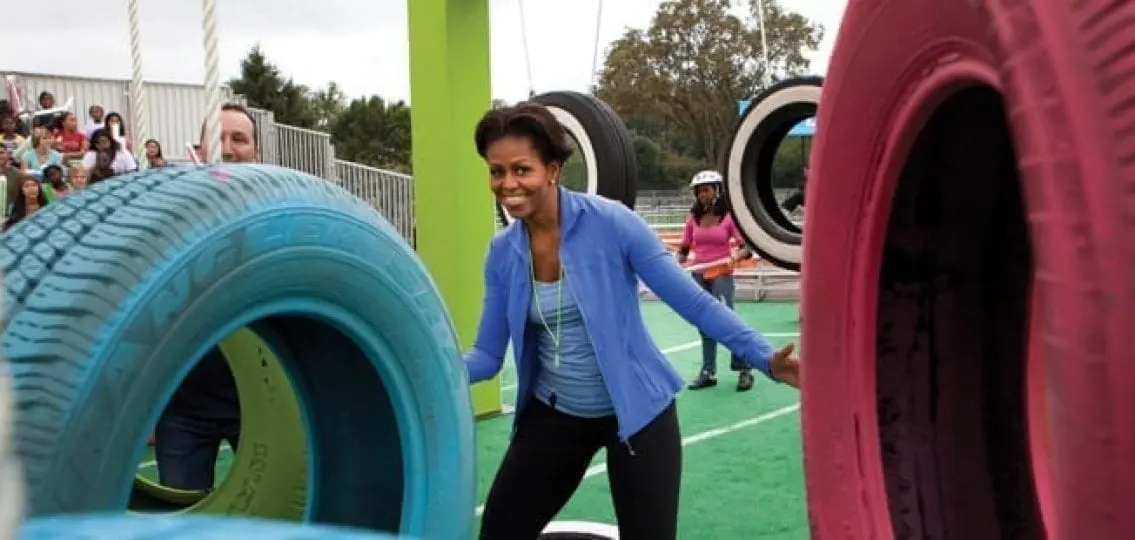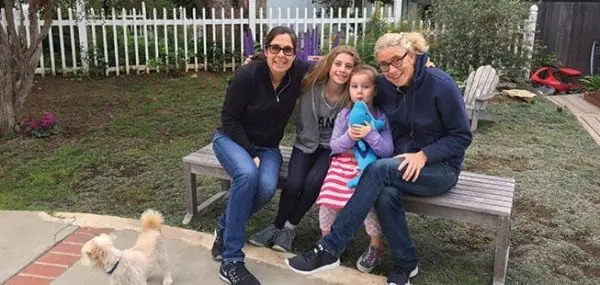First Lady Michelle Obama is one of the most famous moms. Yet, when Your Teen asked the First Lady about her family, it turns out she shares similar concerns with the rest of us. She too struggles to model and create healthy balance around food and exercise. Just like us, she loves her children and worries about them. But, unlike many of us, the First Lady worries about everyone else’s children, as well. We are grateful.
Interview with Michelle Obama
Q: How did childhood health become your passion?
Obama: My interest in children’s health and wellness started several years before I became First Lady. It began with an eye-opening conversation I had with our family pediatrician when my girls were very young. Like a lot of families with two working parents, we didn’t always take the time to prepare healthy meals, and relied on take-out and our microwave more than we should have. We soon started to see effects on our family’s health, and our doctor advised us to make some changes. As a result, we started eating more fruits and vegetables, drinking more water, watching our portions, and eating less take-out. Soon, we all started feeling healthier and more energetic—so I know firsthand that how we eat can have a significant effect on our health.
When we moved into the White House, I wanted to bring the lessons I had learned to my role as First Lady. I wanted to start a national conversation about childhood obesity and do everything I could to support parents who are eager to make healthy choices for their families, and that’s why we launched the Let’s Move! initiative.
From the beginning, the epidemic of childhood obesity wasn’t just a concern to me as the First Lady, but also as a mom, and that’s really how I approach this issue. It isn’t about inches, pounds, or looks; it’s about how our kids feel, and how they feel about themselves. It’s about the impact obesity has on every aspect of their lives—from their physical health to their emotional health to their academic performance—and doing everything we can to help kids grow up healthy and reach their full potential.
Q: How can parents help tweens and teens change their eating habits?
Obama: As a parent, I know from firsthand experience that it isn’t always easy to get your children to swap out junk food for fresh fruits and vegetables, to drink more water, and make other healthy choices when they are constantly bombarded with advertisements for unhealthy options. But I also know that one of the most important things we can do as parents is set the tone by modeling the healthy behavior that we want our kids to follow.
Taking the time to prepare meals with your family and sit down to eat together is a great way to encourage your teens to make healthy decisions. Research shows that when families cook at home, they consume more nutritious meals as compared to when they eat out or eat ready-made meals. And cooking isn’t just good for our physical health, it’s also good for our kids’ emotional health. When families share meals together, research shows that kids actually perform better in school and get along better with their peers. In addition, by involving the whole family in cooking meals, kids learn skills that they can carry throughout their lives, so they can be healthy teens and healthy adults as well.
Q: What tips do you have for getting teens to become more active?
Obama: The key to getting teens to be more active is encouraging them to find activities they enjoy. Many teens enjoy getting involved in athletics at school or in community leagues. But if your teen isn’t into organized sports, there are many other ways to get them moving. You can encourage them go for a bike ride, take your family on a walk around the neighborhood or at a local park, go swimming at a public pool, or even just turn on some music and dance in the living room.




